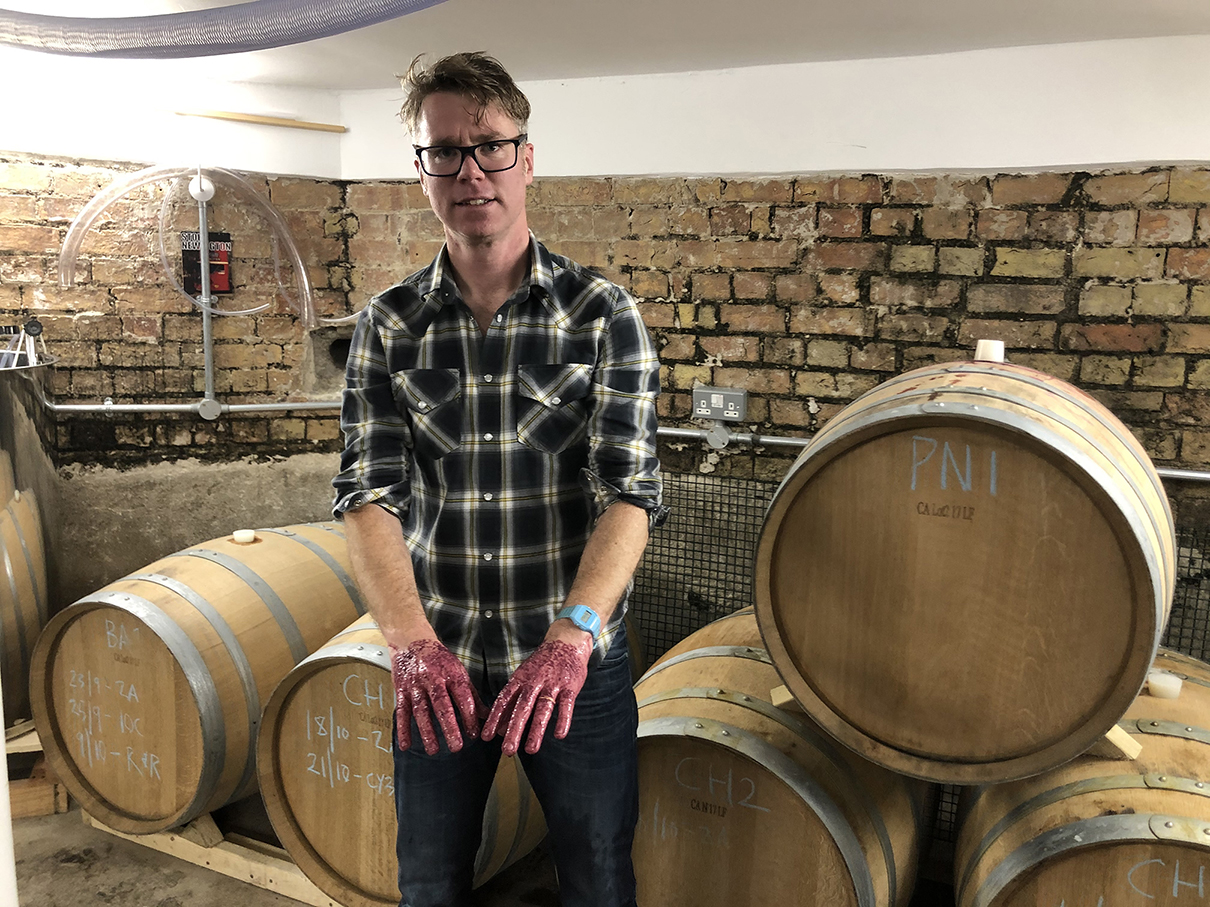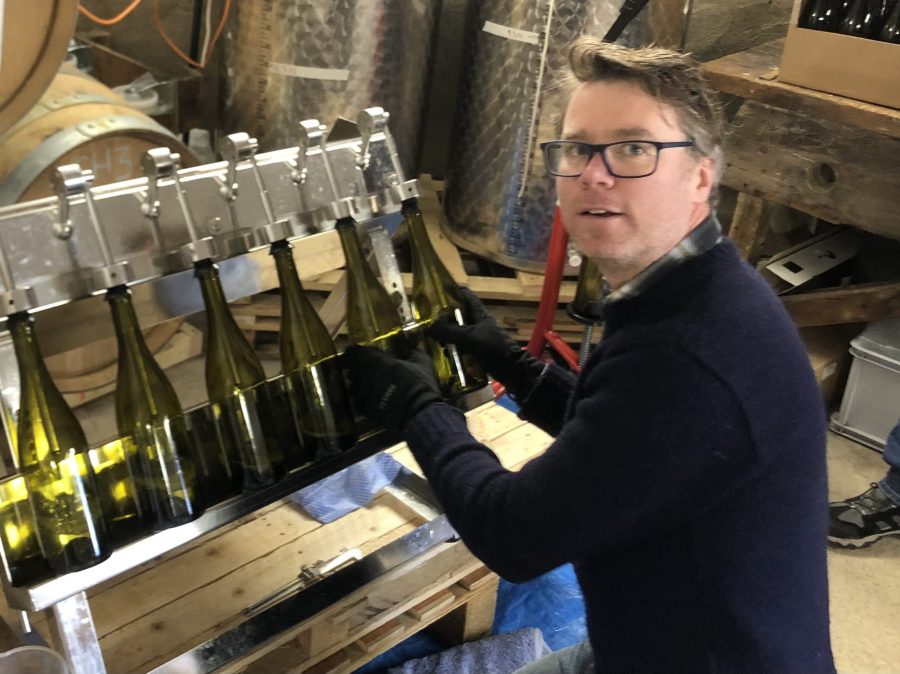Chris Wilson had been working as a wine journalist for more than a decade, so setting up his own winery was not so much a change in career as a diversification.
For Chris it’s a chance to make wine as well as write about it, to get his hands dirty – and escape from the laptop and spittoon! Gutter&Stars is a unique urban winery in a windmill, in Cambridge. But Chris doesn’t want to make run of the mill wines – he wants his wines to excite and intrigue.
Becoming a winemaker
I left national newspaper journalism in 2010 to study at Plumpton College and graduated in 2013 with a BSc in viticulture and oenology. It was three years well spent, not least the study tours and winemaking placements, and it cemented my desire to make wine. The fact that it took seven years to set up my own winery was down to a combination of starting a family, getting some really interesting wine writing gigs and finding the right location.
Gutter&Stars
Gutter&Stars is a small business – I am the owner and winemaker, but also the tea-maker, cleaner and everything in between. I continue my work as a freelance journalist writing for Decanter, The Buyer and Harpers among others.
The name, Gutter&Stars is taken from a quote in Oscar Wilde’s Lady Windemere’s Fan, a play I studied growing up. The winery is self-funded (no city investors here), so the name sums up nicely our ‘shoestring’ approach and situation. We may be in the gutter, but we are looking at – and indeed aiming for – the stars. There’s also a Fatboy Slim album titled ‘Halfway Between the Gutter & The Stars’ which is close to my heart.
There are music references in much of what we do, from the labels to how the ‘brand’ is presented online and across social media. The aesthetic is important to me, and I’ve worked hard with designer Ed Wright to come up with an identity for Gutter&Stars which is eye-catching and – I’d like to think – different from many other producers.
All the 2020 wines used fruit from Missing Gate Vineyard in Essex. This Crouch Valley vineyard is owned and farmed by the Speakman family who, alongside viticulturist Duncan McNeill, did an amazing job in the vineyard. The ‘I Wanna Be Adored’ Bacchus sold out in three days and coming up are a Pinot Noir and Chardonnay.
Plans are afoot for the 2021 harvest, of course, and I hope to increase production this year, using fruit from Missing Gate and I’ve also got my eye on some Oxford-grown Ortega. Uniting Cambridge and Oxford through wine, what could be more fun?
A winery in a windmill
The biggest challenge is getting equipment in and out. It’s a listed building with a narrow (ish) door so I can squeeze a barrel in but nothing larger than a 290L stainless tank. This constraint informs the winemaking to a degree as I am reliant on small batch production – which offers me many blending opportunities! I plan to expand production this year
and there is ample space inside the winery for the extra barrels and tanks I need.
The customers
Cellar door and direct to consumer sales are an important part of my business model – so it helps to be in a characterful building that’s close to the centre of Cambridge. Social media, as well as the local press, has helped a lot in getting my story out there, and I’ve sold wine to all corners of the UK. Around 50% of the Bacchus was sold locally and the rest via the website and couriered to customers around the country.
Winemaking philosophy
I want my wines to excite and intrigue, I want there to be texture and bite… I’m searching for savoury notes, pepper and punch rather than hedgerows and flowers. It’s important to me that each wine is different and true to the vineyard and the vintage. They must look sharp too.
Bright future for the UK – and East Anglia
I think sparkling wines will continue to bloom – but watch out for alternatives to traditional method; Charmat and pet nats are in the ascendancy and that’s good for the industry and – crucially – for the customer.
Looking at East Anglia specifically – still wines will go from strength to strength and Essex will become the hotspot for growing fruit for the UK’s burgeoning still wine scene. It’s already on the map, but from what I hear on the ground – over the next 5-10 years the Crouch Valley will fully stretch out its limbs. There are lots of ambitious plans afoot. Norfolk will be another key area.
Top tips for a career in winemaking
Get your hands dirty. Taste. Travel. The direct route isn’t always the best route.
Recent imbibes
Recent favourites include Flint’s Silex Blanc 2019, the Danbury Ridge Pinot Noir 2018 and Sugrue’s ‘The Trouble With Dreams’ 2015. When it comes to sparkling wine, Dermot is a magician. Any spare time?
My time away from the cellar and my desk is filled with family life (I have two young-ish daughters), music, cricket, cooking, competitive Top 10ing – and planning the next adventure.





